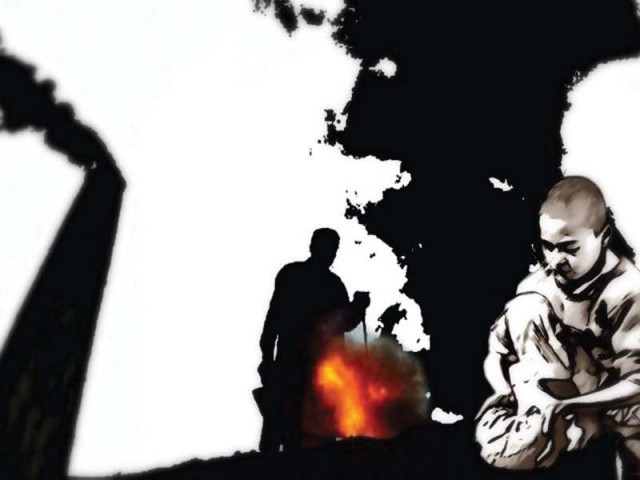Building blocks: One kiln at a time
Education department to open five schools for children working in 45 kilns in the district

Education department to open five schools for children working at 45 kilns in the district.
The administration aims at opening five schools for around 1,000 children working in 45 kilns across the district. The kilns are located in the Losar area of the district where the number of kilns in the area is much higher.
Teams from the Literacy and Non-Formal Education Department in collaboration with the Labour Department launched a survey to estimate the number of children working in kilns.

According to the Labour Department, there are around 250 kilns in the district, only 167 of which are registered.
“The survey approximates that 1,000 children work in these 45 kilns. The survey would soon be extended to other kilns too,” Literacy Department District Officer Zohaib Arain said.
He explained that around 20 to 30 families have been working in each kiln along with their children. The children share the burden of earning a livelihood with their parents and are thus never admitted in schools.
“We would establish one school for children working in six to five kilns, the place and building for which will be provided by kiln owners,” Arain said, adding that besides this other basic necessities such as dispensaries and facility of clean drinking water would also be provided at the schools. The children will also be provided with free books, pencils and uniforms.
Earlier, non-governmental organisations working on children at kilns had hinted that around 800 children were working in the kilns. “But the number was much higher when we completed the survey,” he said.
Furthermore, regarding the financial support, officials at both departments urged the government to involve both NGOs and INGOs.
Previously, steps were taken to impart education to such children. Consequently, schools were then set up but later the project was abandoned after most of the children were shifted to their native towns.
Reasoning the shifting, Arain explained that families working at kilns were mostly nomadic and never settled at a given place for long.
“Brick kilns stops working during the monsoon season due to the rains. Thus the families go back to their native towns and very few return,” said a Labour Department official, requesting anonymity.
The children are exposed to harsh and hazardous working conditions where they are made to work barefoot without any precautionary measures.
However, none of the children work as bonded labourers, according the Labour Department.
Regarding unregistered kilns, he said that they have been issued notices to get registered.
Education versus livelihood
For parents of the children in the kilns, education is not a priority.
“If we don’t work we don’t get food for the day,” said Muhammad Afzal, parent of a child working at one of the kilns.
He added that though they were aware of the importance of education but survival was their priority.
“We know it falls under child labour and violation of child rights but what should we do. Giving them jobs to earn livelihood is the responsibility of the government. If we refuse jobs they would work in other kilns,” said Arif Warraich, a contractor at a kiln when asked about the employment of children.
Published in The Express Tribune, June 8th, 2015.



















COMMENTS
Comments are moderated and generally will be posted if they are on-topic and not abusive.
For more information, please see our Comments FAQ